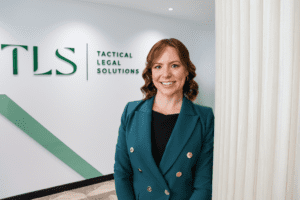Trusts
Strategic advice on Family Trusts and Testamentary Trusts
Trusts can be powerful tools for protecting assets, managing wealth across generations, and minimising tax, but they need to be carefully structured and clearly understood. At TLS, we provide practical, plain-English advice on Discretionary Trusts (Family Trusts) and Testamentary Discretionary Trusts, tailored to your goals.
We act for individuals, families, and business owners seeking long-term asset protection, estate planning flexibility, and control over succession.
What is a Discretionary Trust?
Often called a Family Trust, a Discretionary Trust is a legal structure where a trustee holds and manages assets for the benefit of a group of beneficiaries. The trustee has discretion over how to distribute income and capital.
Discretionary Trusts are commonly used for:
- Asset protection – keeping assets separate from individual ownership
- Income distribution – allowing income to be streamed to family members
- Tax efficiency – managing tax across multiple beneficiaries
What is a Testamentary Discretionary Trust?
A Testamentary Discretionary Trust is created through a Will, and only comes into effect after death. Instead of passing assets directly to a beneficiary, the estate places them into a trust, managed by a trustee the beneficiary can appoint.
These trusts provide:
- The same asset protection and income flexibility as a Family Trust
- Tax advantages for minors as income distributed to children is taxed at adult rates, allowing greater use of the tax-free threshold
- More control over how inheritances are used or preserved
Learn more on our Wills & Estate Planning page.
Who controls a trust?
There are usually three key roles:
- Trustee: Holds legal title to the trust assets and decides how income and capital are distributed.
- Guardian: Has the power to approve or veto trustee decisions, often used to provide an added layer of oversight.
- Appointor: Can remove or replace the trustee. This is often the person with ultimate control over the trust’s future.
We help clients structure these roles thoughtfully, including succession planning for future control of the trust.

Can a trust be changed?
Yes, trust deeds can often be amended through what’s called a deed of variation. Reasons for variation may include:
- Changes to tax law or family law
- A need to update or add powers
- Succession planning adjustments
Some trust deeds include broad (or “wide”) powers to amend most terms; others are more limited. TLS can review your trust deed and advise what’s possible.
How TLS can help
Our team can assist you by:
- Reviewing your existing Family Trust or Testamentary Trust to ensure it meets current legal and tax standards
- Advising on succession and control structures within the trust
- Drafting new Discretionary Trust deeds, Wills with Testamentary Trusts, or deeds of variation to update your trust arrangement
Want to review your trust or plan for the future?
Let’s talk about what works best for you and your family.




